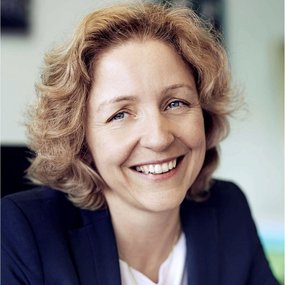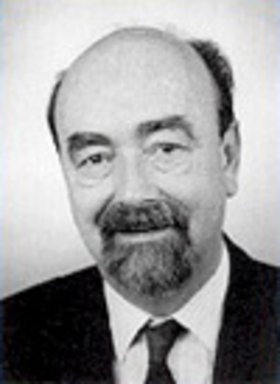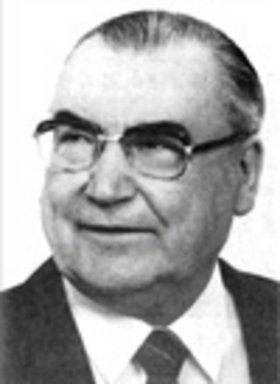Profile of the Institute
The Institute of Eastern European and Comparative Law has been associated with the Academy for European Human Rights Protection since the Academy’s foundation in 2021. The Institute offers a platform for research and teaching on legal developments in Central and Eastern European states. Professor Dr. Angelika Nußberger continues to be the director of the Institute.
The Institute analyses legal developments in the Central and Eastern European region, specifically focusing on constitutional, state, international law and other areas of public law. The Institute spearheads cutting-edge research on topics related to the upheaval in the region initiated by the Russian aggression against Ukraine, including in the area of public international law, international criminal law, human rights and memory laws.
The Institute also offers lectures and seminars on applicable law, legal traditions and legal terminology in Eastern and Central Europe. The Institute makes a special effort to maintain direct contacts with university institutions in Central and Eastern Europe, to support student exchanges within the framework of the Erasmus programme, and regular exchanges of Cologne students and Eastern European students through joint block seminars.
Finally, the Cologne-Bonn Centre for Central and Eastern Europe provides a comprehensive information platform that informs about all institutions at the University of Cologne that deal with the legal system of the states of Eastern and Central Europe, the CIS and East Asia.
Current research projects, including dissertations, can be found on the "Research" page of the Academy for European Human Rights Protection.
History of the Institute
The Institute was founded in 1964 by Professor Dr. Dr. h. c. Boris Meissner. Under his leadership, the Institute for Eastern European Law initially devoted itself to "system research", i.e. the scientific study of law in the Eastern European states, which formed an independent field of research due to its close connection with the political system of these countries. The inclusion of political science questions in the scope of a legal institute was determined by the Marxist-Leninist understanding of the state and law, according to which law was regarded as an instrument of politics. A special focus of research was international law in its connection with foreign policy. During the 1960s, numerous publications by Institute staff dealt with relations between East and West against the background of the socialist understanding of international law.
These studies were to prove valuable preliminary work in the 1970s, the time of the policy of détente and the CSCE process. In addition, the Institute's work now concentrated on researching the connections between constitutional law and the political system under the conditions of a totalitarian one-party state, as well as on questions of economic law. Even though the official understanding of fundamental rights in Eastern Europe changed only gradually until the turn of 1989/90, civil rights movements were able to develop in many countries as a result of the "Helsinki Process", which - for example in Czechoslovakia - were to play a decisive role in the overthrow of the socialist regime. Finally, the CSCE Final Act of 1975 also meant that complaints about human rights violations in the Eastern European states could no longer be stereotypically rejected by them as "inadmissible interference in internal affairs". The foreign policy significance of the human rights issue was reflected in the work of the Institute for Eastern European Law: In 1987, under the direction of the new Institute Director, Professor Dr. Dr. h. c. Georg Brunner, who had taken over the direction of the Institute three years earlier, a comprehensive report on "Human Rights in the Warsaw Pact States" was prepared on behalf of the Federal Minister of Justice. This was followed in 1989 by a similar study on the situation of fundamental rights in the GDR, also with the cooperation of Professor Brunner and other Institute members.
The policy of détente in the 1970s also led to fundamental changes in German-German relations. Since a GDR department had already been affiliated to the Institute in 1968, documentary and analytical work could also be done in the field of GDR law. By the time German unity was established on 3 October 1990, a library of about 10,000 volumes on GDR legislation, jurisprudence and legal practice had been built up, which served courts, authorities and lawyers well, especially after the fall of communism in 1989. Legal provisions of the GDR as well as those of the Soviet occupying power were of particular importance for the law of open property issues. The same applied to the "legal coming to terms with the past"; in this context, reference should be made to the expert reports prepared by Professor Georg Brunner for the Enquete Commission of the German Bundestag, which dealt with party rule and the state apparatus as well as the development of the understanding of law in the GDR.
The demise of the GDR most impressively marks the scope of the political and economic changes in the former Eastern bloc. The former "system research" was replaced by academic monitoring of the transformation process, which was increasingly determined by questions of legal harmonisation in the course of the EU's eastward expansion. Accordingly, the tasks of research on Eastern European law have increased rather than decreased; the resources available have not kept pace with this development. The nine member states of the Warsaw Pact were replaced by 28 independent states that had to fundamentally reorganise their legal systems. Both a common political system and a common legal theory were lacking, so that the legal transformation process naturally proceeded in a differentiated manner and produced diverse results, some of which have still not been completed.
The Institute for Eastern European Law has been directed by Professor Dr Angelika Nußberger M.A. since 2002. In 2014, it was renamed the Institute for Eastern European Law and Comparative Law. Since 2021, the Institute for Eastern European and Comparative Law has been affiliated with the Academy for the Protection of European Human Rights at the University of Cologne.
Former and current institute management

Professorin Dr. DDr. h.c. Angelika Nußberger M.A.
Director of the Institute for Eastern European and Comparative Law since 2002. In 2014, the former Institute for Eastern European Law was renamed to Institute for Eastern European Law and Comparative Law. Since 2021, the Institute has been affiliated with the Academy for European Human Rights Protection at the University of Cologne.
Selected activities:
-
Editor of the Zeitschrift Osteuropa-Recht
-
Member of the International Advisory Board of the East European Yearbook of Human Rights
-
Member of the Editorial Committee of the Ruch Prawniczy, Ekonomiczny i Socjologiczny
-
Member of the Editorial Board of the Meždunarodnoe Pravosudie

Professor Dr. Dr. h.c. Georg Brunner (*† 24.10.2002)
Director of the Institute 1984 - 2002.
"Pioneering" political scientist and former president of the Göttingen Working Group.

Professor Dr. Dr. h.c. Boris Meissner († 10.9.2003)
Founder and director of the Institute 1964 - 1984.
Holder of the Order of Merit of the Federal Republic of Germany.